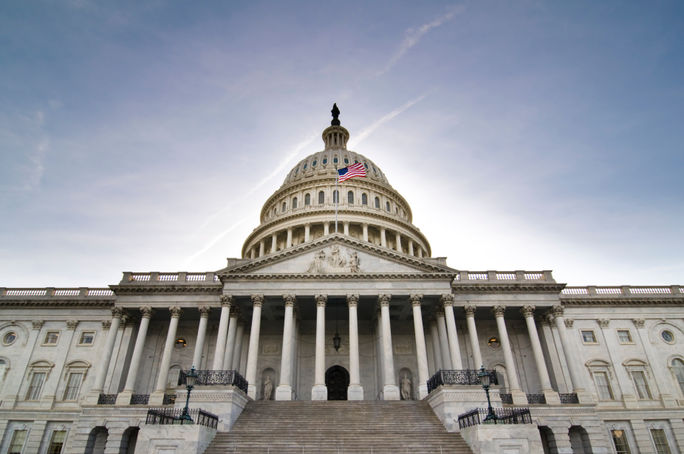


Hotels and resorts made quite a few headlines in June, but this list is curated to offer small bites of the top news you need to know. From new data on the slowing U.S. hotel industry to newly debuted resorts in popular locales, check out the hotel and resort news you might’ve missed in June.

Travel savings. (Photo Credit: Adobe Stock/surasaki)
STR and Tourism Economics have lowered their 2024-25 U.S. Hotel Forecast as slow-growing wages, high cost of living and high interest rates are beginning to slow travel, especially amongst lower and middle-income Americans.
Overall hotel demand in the U.S. fell only 0.5 percent in April, but demand for midscale properties fell 2.7 percent, with economy hotel demand falling 3.9 percent.
“Still-elevated interest rates and easing wage growth have contributed to cautious business investment and pinched spending by many middle- and lower-income consumers,” said Aran Ryan, director of industry studies at Tourism Economics, “Looking beyond this near-term pull-back in demand at lower-tier properties, we expect moderate travel growth to resume, supported by a tempered economic expansion and the continued rebound of group, business, and international travel.”

The pool area at JOIA Aruba by Iberostar. (Photo Credit: Iberostar Hotels & Resorts)
Family-owned Spanish hotel company Iberostar announced it would open its first resort in Aruba later this year. JOIA Aruba by Iberostar will be a family-friendly all-inclusive resort located along Eagle Beach just a short drive from Oranjestad.
When it opens, it’ll feature 240 suites, including swim-up suite options, a spa, casino, event spaces, an 18-hole golf course, three main dining options and more.
“We are delighted to introduce Iberostar’s inaugural resort in Aruba, a stunning destination that shares our passion for quality and commitment to a model of responsible tourism,” said Phil Mc Aveety, CEO, Iberostar Hotels & Resorts. “JOIA Aruba by Iberostar is a testament to our promise of providing guests with exceptional experiences. We are very pleased to expand Iberostar’s presence in the Americas, aiming to contribute positively within the local community with a shared sense of prosperity and commitment to sustainability.”

Four Seasons Resort and Residences Cabo San Lucas at Cabo Del Sol. (Photo Credit: Four Seasons Hotels and Resorts)
Four Seasons Resort and Residences Cabo San Lucas at Cabo Del Sol opened as the Cabo’s newest luxury beachfront escape in June. Located along the scenic Sea of Cortez, the resort boasts 96 rooms and 61 residences, villas and estates.
The resort offers amenities like eight restaurants and drinking venues, three pools, a spa, kids club, adventure center, art gallery and retail shop featuring local artisans.
“Our accommodations are redefining luxury beachfront living,” said Edgar Niebla, the property’s resort manager. “From our 847-square-foot guest rooms to our 7,255-square-foot oceanfront one-bedroom villas, we are welcoming guests to their Mexican home-away-from-home.”

Sailing at Hyatt Ziva Cap Cana (Photo Credit: Hyatt Hotels Corporation)
A new report identified the top hotel rewards programs of the year, and it’s official: World of Hyatt is the best of the best in 2024.
The new report, conducted by WalletHub, ranked the programs with 20 metrics. World of Hyatt offers the most money in rewards value per $100 spent, at $14.72 in rewards value per $100 spent.
In order, other high-ranking loyalty rewards programs include Wyndham Rewards, Sonesta Travel Pass, Marriott Bonvoy, Hilton Honors, Choice Privileges, IHG One Rewards and Best Western Rewards.
“When people look for ways to save on summer travel, taking advantage of hotel loyalty programs usually isn’t at the top of the list, but maybe it should be,” said WalletHub Editor John Kiernan in a statement. “Hotel rewards programs are free to join, and WalletHub’s latest research shows that the five best programs save members an average of 10 percent on their hotel spending.”

Housekeeping staff member working at a hotel. (Photo Credit: Adobe Stock/rh2010)
A report published in June by the American Hotel & Lodging Association (AHLA) found that while hotels in the U.S. added 700 new jobs in May, it’s still far below the 191,500 workers that are still needed to maintain and manage hotels across the nation.
Hotels in the U.S. currently employ 1.92 million people, and that number still hasn’t recovered completely from the pandemic, when many hotel employees left for other opportunities as the industry stalled.
While hotels continue to offer record-breaking high wages and increased benefits, it’s only done so much to attract more workers. The AHLA continues to advocate for the government’s role in expand the H-2B temporary nonagricultural worker visa, pass the Closing the Workforce Gap Act of 2024 and the Asylum Seeker Work Authorization Act, which would allow asylum seekers the ability to work 30 days after they apply for asylum.
“Congress and the administration can provide relief to hoteliers by taking a number of key steps to increase the pool of available workers,” said AHLA Interim President & CEO Kevin Carey. “Those include expanding the number of H-2B visas, extending the certification period for H-2B employees, and making it easier for qualified asylum seekers to start working in the U.S.”

United States Capitol building.
Those eager to save money and enjoy greater transparency when it comes to shopping for accommodations can rejoice: the United States House of Representatives has passed the bipartisan No Hidden FEES Act, the first step towards making the law a reality.
The act would establish a single standard for mandatory and transparent fees displayed to consumers prior to booking across the lodging industry. Hidden fees have especially raised the ire of American consumers against large hotel corporations.
“It makes sense for all lodging businesses – from short-term rentals to online travel agencies, metasearch sites, and hotels – to tell guests up front about mandatory fees,” said AHLA Interim President & CEO Kevin Carey. “That’s why AHLA has led efforts supporting federal legislation to establish a single and transparent standard for mandatory lodging fee displays and an even competitive playing field.”
For the latest travel news, updates and deals, subscribe to the daily TravelPulse newsletter.